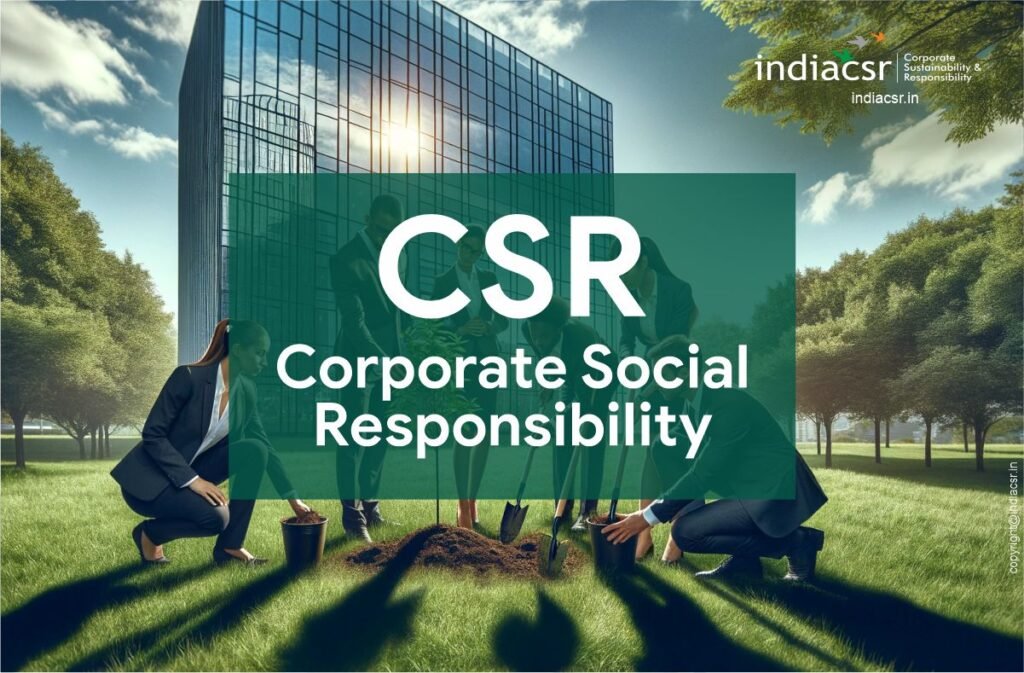Understanding CSR, ESG, and Sustainability
Definitions and Core Concepts
Corporate Social Responsibility (CSR) is fundamentally about a company’s ethical and responsible operation, considering its societal, environmental, and stakeholder impacts. Environmental, Social, and Governance (ESG) criteria, on the other hand, extend these concepts by integrating them into the company’s core purpose, supported by quantifiable data across environmental, social, and governance metrics. Sustainability encompasses both CSR and ESG, aiming for long-term ecological balance and responsible business practices.
Interconnections and Distinctions
CSR is often seen as a precursor to ESG, focusing on self-regulation and sustainable practices aimed at positive societal impact. ESG, however, quantifies these efforts and is increasingly demanded by investors for its measurable sustainability assessment. While CSR provides a general framework for sustainability, ESG offers a structured and evidence-based approach, making it crucial for investor confidence and stakeholder engagement.
Impact on Business Practices
The integration of CSR and ESG into business practices not only enhances corporate reputation but also drives investment decisions. Companies employing these strategies often see improved risk management and increased transparency, leading to better performance and stakeholder trust. The evolution from CSR to ESG represents a shift from broad ethical commitments to specific, accountable actions that can be measured and reported, thus influencing a wide range of business practices from operational strategies to public reporting.
***
Corporate Social Responsibility (CSR) Explained
Origins and Evolution
Corporate Social Responsibility (CSR) has evolved from a mere public relations tactic to a fundamental part of corporate strategy. Initially focused on philanthropy, CSR now encompasses a broader range of activities aimed at improving a company’s social and environmental impact. This shift reflects a growing public and consumer demand for ethical business practices.

Key Components and Implementation
CSR is characterized by its focus on three main areas: social, environmental, and economic responsibilities. Effective implementation often involves:
- Establishing clear CSR policies
- Integrating these policies into daily business operations
- Regularly reporting on CSR progress and outcomes
These steps ensure that CSR is not just a statement of intent but a functional aspect of business operations.
Examples in Practice
Many companies have successfully integrated CSR into their business models. For instance, Google has invested in sustainable campuses and supports numerous educational initiatives, while Starbucks focuses on ethical sourcing and community engagement. These examples demonstrate that CSR can be both a moral imperative and a strategic asset.
***
Environmental, Social, and Governance (ESG) Criteria
What ESG Measures
ESG stands for Environmental, Social, and Governance, representing a set of criteria used to evaluate a company’s operations and policies in these three critical areas. Environmental criteria may include aspects like energy use, waste management, and treatment of animals. Social criteria cover the company’s relationships with employees, communities, and other stakeholders, focusing on practices like diversity and inclusion, community engagement, and ethical supply chain management. Governance involves the internal systems and controls governing a company, including compliance, board diversity, and executive pay.

Importance for Investors
Investors increasingly rely on ESG criteria to assess potential risks and opportunities associated with their investments. High ESG scores can indicate a company’s robustness in managing sustainability-related issues, which can lead to better financial performance and lower investment risks. Companies with strong ESG metrics are often more resilient, innovative, and profitable, making them attractive investment choices.
Comparative Analysis with CSR
While both CSR (Corporate Social Responsibility) and ESG focus on ethical, sustainable business practices, ESG criteria provide a more structured and measurable framework. Unlike CSR, which is often seen as more discretionary and qualitative, ESG offers quantifiable metrics that investors and other stakeholders can use to compare companies directly. This measurable aspect helps in making informed decisions about where to allocate resources for maximum impact and return.
***
The Role of Sustainability in Business
Broader Concept of Sustainability
Sustainability in business is a broad concept that encompasses the management of environmental, social, and financial demands to ensure responsible, ethical, and long-term success. It focuses on a company’s role in society and its impact on a wide range of stakeholders. Sustainability aims to meet present needs without compromising future business capabilities.

Integration with CSR and ESG
Sustainability is implemented through a combination of CSR (Corporate Social Responsibility) and ESG (Environmental, Social, and Governance) practices. This integration helps businesses not only to behave ethically but also to demonstrate their commitment to responsible practices through measurable outcomes.
Future Trends and Predictions
The ability to prove ROI for sustainability practices is becoming crucial for businesses. As pressures increase, companies are expected to demonstrate ethical behavior and responsible operations more transparently. The trend suggests a growing integration of sustainability with financial performance, leading to resilient business operations and long-term growth.
***
Comparative Analysis: CSR vs ESG
Differences in Approach and Metrics
CSR (Corporate Social Responsibility) and ESG (Environmental, Social, and Governance) both aim to address sustainability and corporate responsibility, but they differ significantly in their approaches and metrics. CSR is more qualitative, focusing on general sustainability frameworks and self-regulated initiatives. In contrast, ESG is quantitative, providing measurable sustainability assessments that are particularly useful for investors.
Impact on Corporate Valuation
The impact of CSR and ESG on corporate valuation also varies. ESG metrics are increasingly used by investors to assess potential risks and opportunities, directly influencing investment decisions and company valuations. CSR, while influential, often does not directly translate to quantitative valuation metrics but enhances company reputation and stakeholder trust.
Cultural and Ethical Considerations
Cultural and ethical considerations play a significant role in both CSR and ESG. However, the integration of these considerations into business practices differs. CSR tends to focus on broader ethical practices and cultural community engagements, whereas ESG criteria are closely tied to specific governance issues and social responsibilities that have direct financial implications.
***
Practical Applications and Case Studies
Successful CSR Initiatives
Successful CSR initiatives often involve comprehensive strategies that address various aspects of corporate responsibility. For instance, a company might implement a robust recycling program, support local education through scholarships, or engage in fair trade practices. These initiatives not only enhance the company’s reputation but also contribute to long-term economic benefits.
Notable ESG Implementations
Notable ESG implementations focus on measurable outcomes that align with environmental, social, and governance criteria. Companies might track their carbon footprint reduction, improve labor policies, or enhance board diversity. These actions are crucial for attracting ESG-focused investors and can significantly impact the company’s financial performance.
Lessons Learned and Best Practices
From the practical applications of CSR and ESG, several lessons emerge:
- Transparency is crucial for both CSR and ESG efforts.
- Engaging stakeholders and maintaining open communication channels can lead to more effective implementations.
- Continuous improvement and adaptation to new challenges are essential for sustaining these initiatives.
- These best practices help companies to not only meet regulatory requirements but also excel in their corporate responsibility goals.
***
The Future of Corporate Responsibility
Emerging Trends
The corporate world is witnessing a significant shift towards more sustainable and responsible business practices. The integration of advanced technologies such as AI and blockchain is enhancing transparency and accountability in CSR and ESG reporting. This trend is driven by increasing regulatory pressures, evolving consumer expectations, and a growing emphasis on ethical business practices.
Shifts in Business and Investor Perspectives
Investors and businesses are increasingly aligning their strategies with long-term sustainability goals. There is a growing recognition that sustainable practices are not only beneficial for the environment and society but also contribute to financial performance. This alignment is reshaping investment strategies and corporate policies, emphasizing the importance of responsible business conduct.
Predictions for CSR and ESG Evolution
The future of corporate responsibility is likely to see an increased focus on measurable and impactful CSR and ESG initiatives. Companies will be expected to go beyond traditional philanthropy and integrate their social and environmental efforts deeply into their core business strategies. This evolution will be crucial for businesses aiming to thrive in an increasingly conscientized market.
***
Conclusion
In conclusion, while sustainability, CSR (Corporate Social Responsibility), and ESG (Environmental, Social, and Governance) are all interrelated concepts within the business context, they each serve distinct purposes and are utilized differently. Sustainability is a broad concept that encompasses the enduring environmental, social, and economic health of the global system. CSR is a self-regulated business model that focuses on ethical practices and contributing positively to society, often without direct financial incentives. ESG, on the other hand, provides a set of measurable criteria that investors use to assess the sustainability and ethical impact of a company. Understanding these differences is crucial for businesses and investors alike to effectively implement practices that support long-term sustainability goals.
Frequently Asked Questions
What is the difference between CSR and ESG?
Corporate Social Responsibility (CSR) refers to sustainability strategies businesses employ to ensure that the company is carried out ethically. In contrast, Environmental, Social and Governance (ESG) are criteria used to measure a company’s overall sustainability.
How does ESG or CSR differ from ‘sustainability’?
ESG and CSR refer to measurable standards and a specific business model, respectively, while ‘sustainability’ is a broader concept that encompasses these practices but is not limited to them.
Is CSR the same as ESG?
No, CSR is a company’s framework of sustainability plans and responsible cultural influence, whereas ESG is the assessable outcome concerning a company’s overall sustainability performance.
What are the key differences between CSR and ESG?
CSR is a qualitative, self-regulated approach not directly related to financial performance, focusing on corporate culture and values. ESG, on the other hand, is a quantifiable, enforceable framework used by investors to assess sustainability impact.
Can ESG replace CSR?
While ESG has gained popularity and is seen by some as potentially replacing CSR, they are distinct concepts with different focuses and are not interchangeable.
What is the practical difference between CSR and ESG in business?
CSR involves a company’s internal commitment to strong corporate values and cultural influence, while ESG is a criteria used by investors to assess the measurable sustainable impact of a business.







